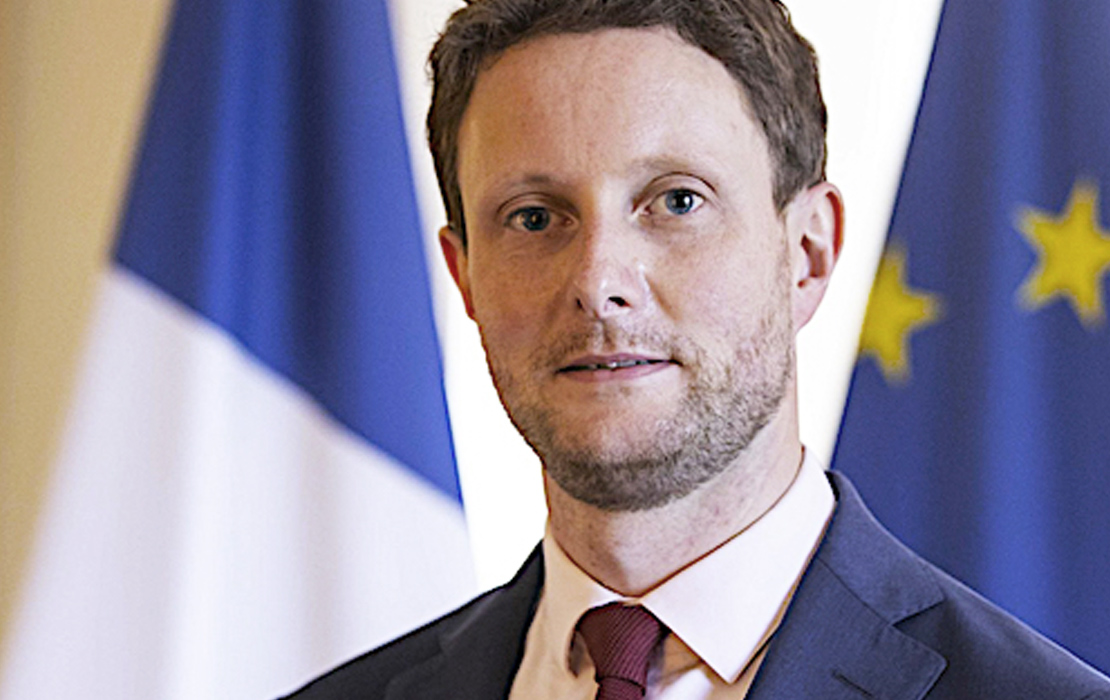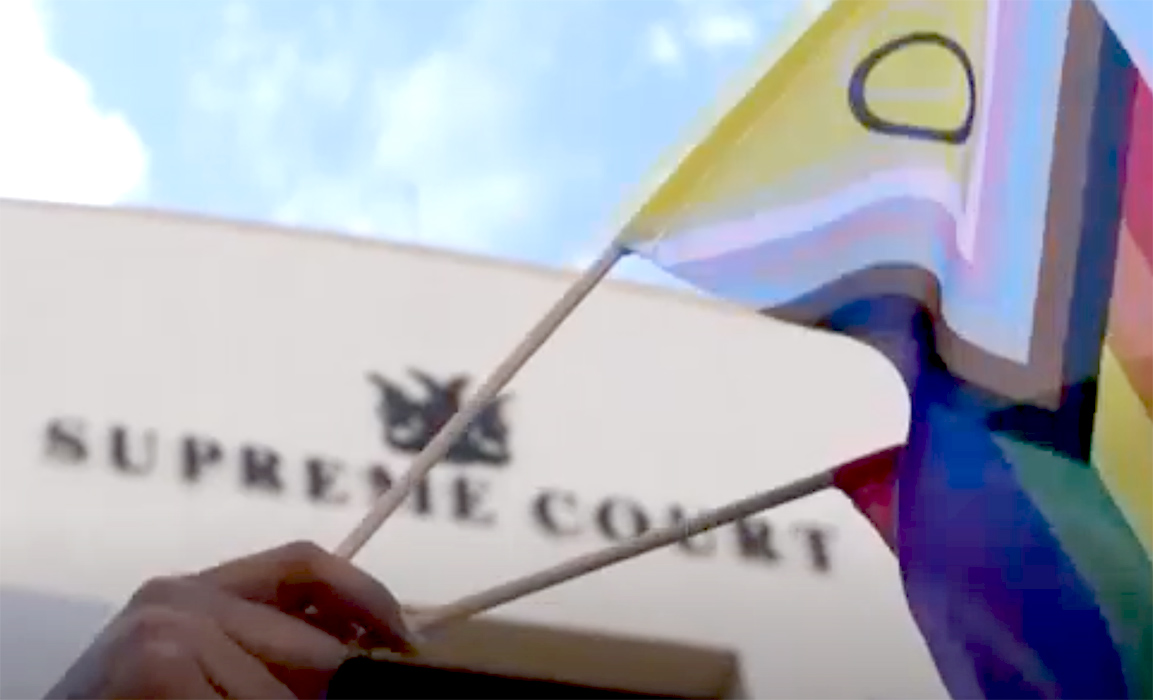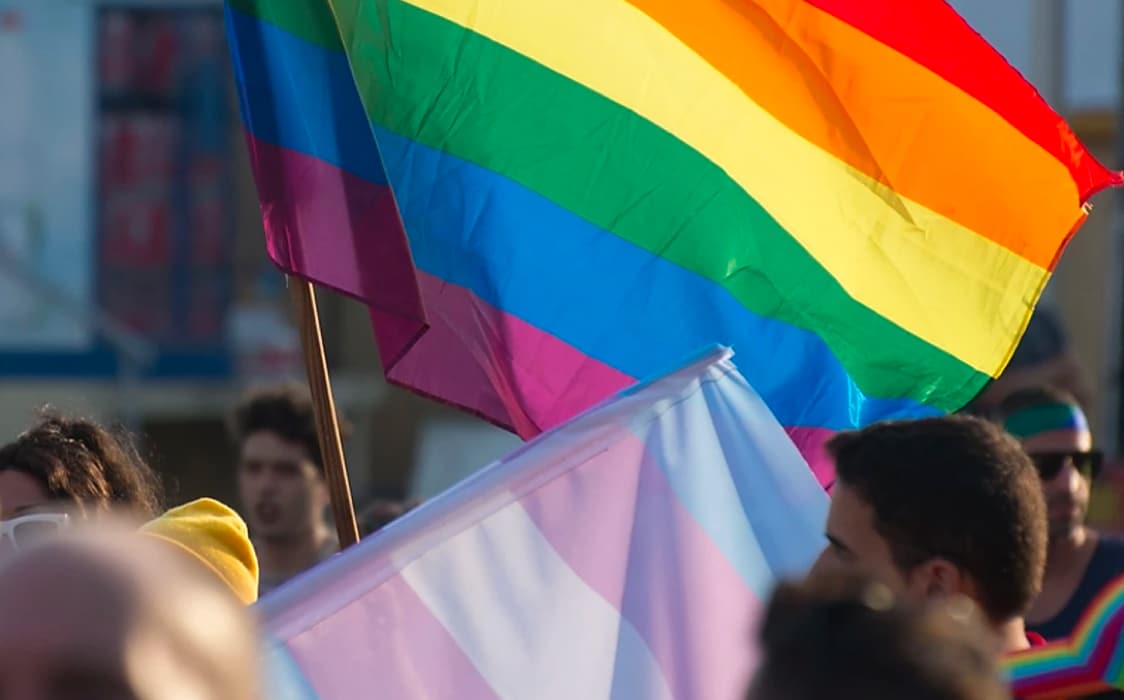>> In landmark vote, Costa Rica Social Security System guarantees same-sex couples same rights as other couples
Jusqu’ici, les conjoints de même sexe ne pouvaient bénéficier du régime de santé de leur conjoint, dans un pays où le mariage pour tous n’existe pas.
Les personnes homosexuelles vont pouvoir inscrire leur conjoint à la Sécurité sociale au Costa Rica, petit pays d’Amérique centrale traditionnellement conservateur où le mariage gay n’existe pas. La décision, annoncée jeudi soir par la Caisse costaricienne de Sécurité sociale, répond à une vieille revendication du mouvement homosexuel dans ce pays religieux.
Le président centriste Luis Guillermo Solis, élu début avril, a célébré l’événement, une semaine après avoir provoqué une polémique en recevant au siège du gouvernement une délégation du mouvement homosexuel et hissé le drapeau arc-en-ciel à l’occasion de la journée de lutte contre l’homophobie.
Vendredi, «le Costa Rica s’est réveillé avec une très bonne nouvelle. Je me sens très satisfait de la décision de la Sécurité sociale d’autoriser l’inscription des couples de même sexe et le droit fondamental à l’accès à l’hôpital», a écrit Luis Guillermo Solis sur un réseau social.
La présidente de la Sécurité sociale, Maria del Rocio Saenz, a précisé que la mise en oeuvre de cette réforme devrait intervenir dans les 90 jours. «Nous attendions vraiment cette résolution, qui a été une lutte de plusieurs années. Nous serons vigilants sur l’application de la mesure, qui constitue un grand progrès pour le Costa Rica», a commenté l’avocat Marco Castillo, dirigeant du Mouvement Diversité.
>> The Costa Rican Social Security System’s board of directors on Thursday evening unanimously approved reforms that would grant same-sex couples the same rights as heterosexual couples in public health care matters, including visitation rights, insurance coverage and the ability to make medical decisions, among other benefits.
The Caja board had discussed the reforms – promoted by Costa Rica’s LGBT community – in recent weeks. Caja officials now will have three months to implement the measures.
Giovanny Delgado, a Caja employee and member of the Diversity Movement, said that for the first time in Costa Rica, same-sex couples officially are recognized with the same rights as heterosexual couples.
“It is an enormously important step. It is historical in Costa Rica,” Delgado said.
Discrimination and access to benefits
The reform proposals were initiated by Caja board member José Luis Loría, and will change Article 10 of the Caja’s health regulations, which defines a patient’s partner as a person – man or woman – who lives in a free, stable union “under the same roof with another person of the opposite sex.”
The proposal would change that language to: “under the same roof with another person of the opposite sex or the same sex.”
Giovanny Delgado, a caja employee and member of the Diversity Movement, speaks at a vigil in front of the Costa Rican Supreme Court last week.
Lindsay Fendt/The Tico Times
The new measures will require the Caja to treat same-sex couples the same as other Costa Rican worker in terms of benefits and rights.
“[Same-sex couples] are included in the salary pool of the economically active population, and as such, they pay into the [Caja] the same as everyone else,” Loría said. “So from the point of view of payments and premiums, they are paying for these pensions and for health insurance. There is no excuse to discriminate against them.”
Marco Castillo, president of Costa Rica’s Diversity Movement, said the LGBT community faces difficulties because same-sex partners had not previously been given the same legal standing by the Caja as other family members.
“We have seen cases where people’s own family members have beat them up and kicked them out of their homes. And after that, the [Caja] issues hospital visitation access to the same family members and not to the patients’ partners,” Castillo said. “We’ve seen cases where patients have died in the hospital 15 days after becoming ill and they were unable to be accompanied by their partners.”
Castillo also said that gay and lesbian partners should be able to decide which medical treatments doctors provide their partners, and they should be allowed to make decisions in terminal illness cases.
New regulations
Last Friday, members of Costa Rica’s LGBT community held a vigil in front of the Supreme Court in downtown San José. At the event, Luis Zamora Salas said the Caja reforms would provide him and others the right to make decisions about their lives.
“The right to insurance empowers a person and allows that person to provide insurance to his or her partner. That strengthens a relationship, and gives more security to gay couples,” he said.
Gay rights supporters spread candles and flowers on the sidewalk in front of the Costa Rican Supreme Court during a vigil
Lindsay Fendt/The Tico Times
However, Zamora believes medical insurance should be regulated so that only long-term couples have access to the benefits.
“There should be a mechanism that regulates these situations so that people don’t abuse the system, which would jeopardize the gains made by the gay community,” he said.
Delgado said he has witnessed several human rights violations in public hospitals in Costa Rica.
“Day after day people die alone, without protection of their rights, without the right to be visited by their partners in difficult moments,” he said.
Delgado said he has seen patients’ family members deny these rights to partners and prohibit them from entering hospitals.
Some family members “take advantage of the situation and prevent partners from entering the hospital to put their loved ones’ affairs in order, with the intention of taking over homes, cars and other assets. We’ve seen all types of abuse, and we’ve denounced it,” Delgado said.
Little information
An estimated 108,000 people are among Costa Rica’s LGBT community, according to a Caja study commissioned by lawmakers studying a same-sex rights bill. Of those, 54,000 live with their partners and 27,000 would acquire rights under a same-sex cohabitation bill being studied in the Legislative Assembly.
But how are these numbers calculated? According to a report sent to the Assembly in July 2013, Costa Rica’s LGBT community was measured based on a Web page with 32 studies conducted in 12 countries, as well as Costa Rica’s 2011 census, and statistics from the Center for Research and Promotion of Human Rights in Central America, or CIPAC.
However, the Caja has no information regarding the number of insured people who live with a partner of the same sex.
According to the 2011 census, 1,114 gay and lesbian couples live together in a free union or through marriage in another country.


















